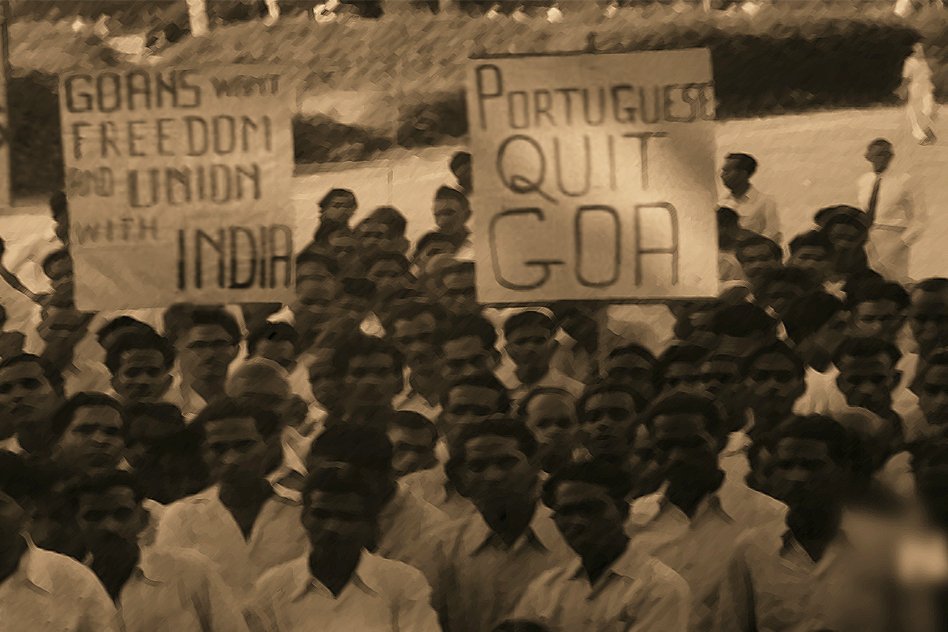Long after British left India, French and Portuguese Colonies were yet to be politically integrated into India. While the French Colonies were integrated via diplomatic solutions, the reluctance of the Portuguese government to hand over their colonies diplomatically left India with little choice but to use military strength to integrate Goa into India. Here is the timeline of how things unfolded at that time.
1951: Portugal amended its constitution to convert its colonies in India into Portuguese Provinces.
1954: Uprising in Dadra and Nagar Haveli threw off Portuguese rule. The attempt by Portuguese to reoccupy the enclaves were thwarted by the Indian troops, following which Portugal dragged India into International Court of Justice.
1955: Indian Consulate in Goa was closed. Nehru stated in unwavering terms that the Portuguese presence in India will not be tolerated.
1960: Court Rejects Portuguese Complaint. The United Nations General assembly also rejects Portugal’s contention that its overseas territories are provinces.
1961: Following the failure to obtain any diplomatic solution, Operation Vijay was put into action.
Operation Vijay – Purging of the Portuguese The action by the Indian armed forces that ended 451 years of Portuguese governance in Goa was codenamed ‘Operation Vijay’. It involved land, sea and air strikes for over 36 hours resulting in 22 Indian deaths and 30 Portuguese deaths. On December 18, 1961, the operation was put into action. The Portuguese armed forces were instructed to either fight or die, but they offered little or no resistance to the Portuguese army heavily outnumbered by their Indian counterparts. The Portuguese forces eventually surrendered on December 19th, 1961.
Russia – A friend in need Prime Minister Narendra Modi once stated that “…in times of crisis, where you need a friend, Russia has always stood with us… “. The statement was based on facts as was evident post successful annexation of Goa when the Portuguese severed all diplomatic links with India and Lisbon took India to Security Council, where the resolution condemning India’s action was vetoed by USSR.
The US, UK, France, Brazil, Pakistan all condemned the military action taken by India. India’s international image as a pacifist nation took a hit as was evident with what President Kennedy told the Indian ambassador, “You spend the last fifteen years preaching morality to us, and then you go ahead and act the way any normal country would behave… People are saying, the preacher has been caught coming out of the brothel.”
Many African countries, themselves being former European colonies reacted with delight at the capture of Goa. Surprisingly, China too supported India, although, it wasn’t without a jab at the then Prime Minister of India, Jawaharlal Nehru. The Communist newspaper of Hong Kong (regarded as reflecting the Government’s views) described the attack as “a desperate attempt by Mr. Nehru to regain his sagging prestige among the Afro-Asian nations.” The head of the Soviet Union applauded the Indian action and urged Indians to ignore Western indignation as it came “from those who are accustomed to strangle the peoples striving for independence… and from those who enrich themselves from colonialist plunder”
Revival of India – Portuguese relations Following the fall of the authoritarian rule in Lisbon, the relation between India and Portugal improved. On 31 December 1974, a treaty was signed between India and Portugal with the Portuguese recognising full sovereignty of India over Goa, Daman, Diu, Dadra and Nagar Haveli. Goa was incorporated into India as a Union territory and, in 1987, became a state.
-Nirvan Gandhi











